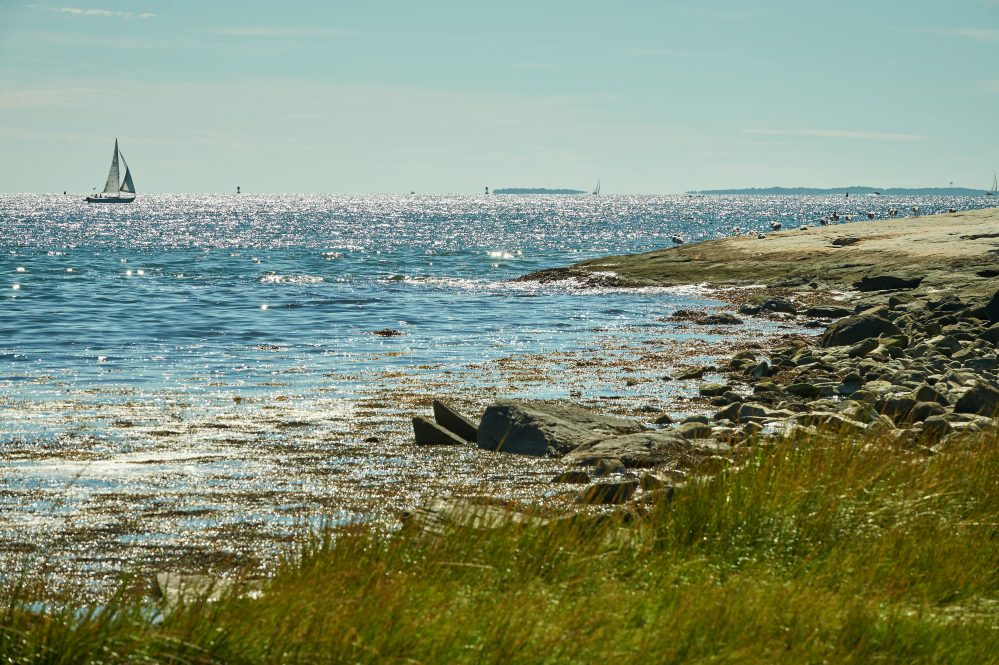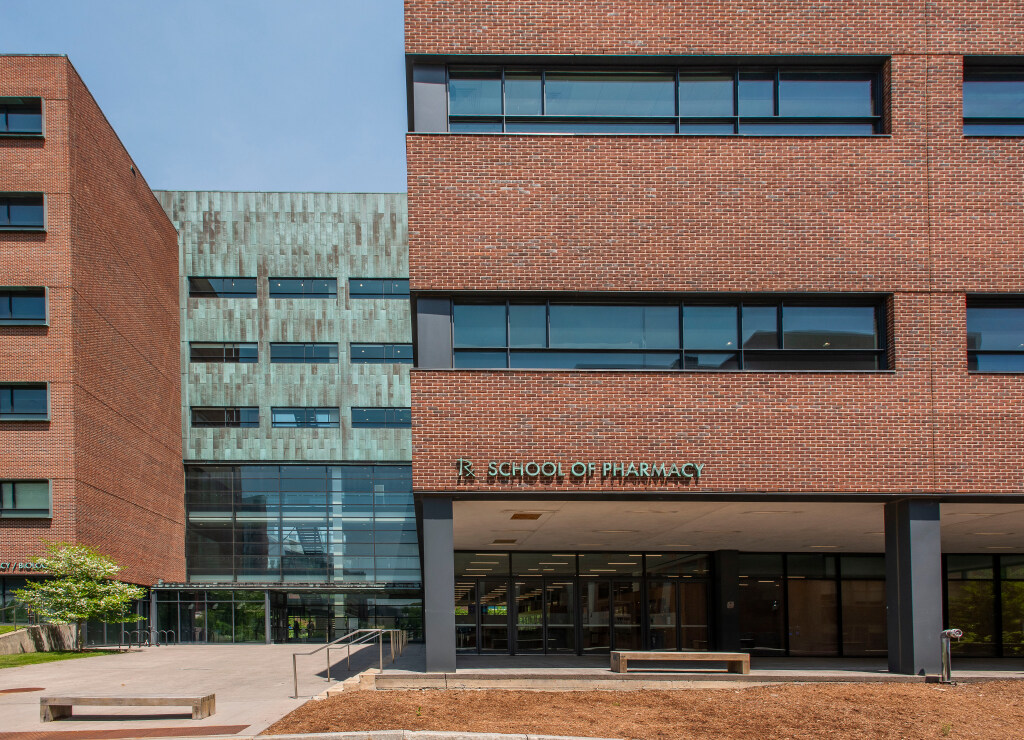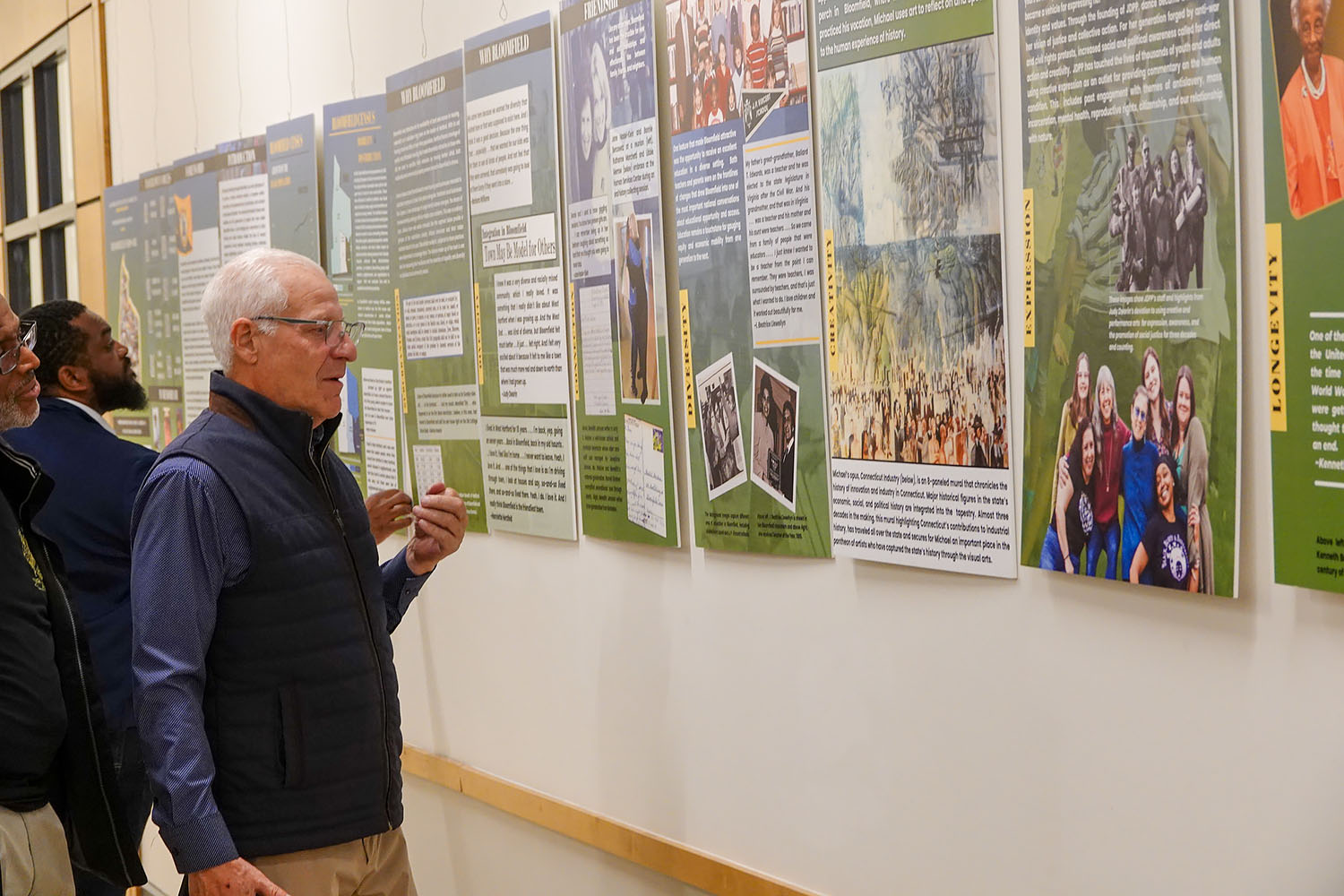Coastal forests are unique ecological communities. They provide habitat to wildlife, reduce flooding, and trap carbon, preventing it from entering the atmosphere. Unfortunately, as the planet warms, sea levels are rising, and sea storms are becoming more frequent and intense. This is making these forests wetter and saltier and more susceptible to storm damage, seriously endangering them.
A group of researchers in the College of Agriculture, Health, and Natural Resources (CAHNR) have received funding from the Long Island Sound Futures Fund (LISFF) to develop a strategy for coastal forest management at the Hoffman Evergreen Preserve in Stonington, Connecticut. The preserve is within the coastal boundary of Long Island Sound. The grant includes $57,144 from LISFF and $33,600 in matching funds from UConn totaling $90,744.
This grant is part of a larger effort funding 24 projects throughout New England focused on conservation of the Long Island Sound Watershed. Between federal funds and grantee matching, the awards total $5.1 million.
Juliana Barrett, extension educator with the Connecticut Sea Grant program, is the principal investigator on the project. Robert (Bob) Ricard, a senior extension educator with the Department of Extension and Department of Natural Resources and the Environment, is also working on this grant.
The researchers are collaborating with Beth Sullivan and Sharon Lynch from Avalonia Land Conservancy. Two UConn students, Griffin Licari and Chris Arrotti, did background research related to this work as part of independent projects for the Climate Corps.
The 198-acre preserve in Stonington is in danger of facing more severe impacts of storms and other climate changes such as warmer air temperatures, and altered precipitation patterns, soil conditions, and growing seasons.
This project will develop a multifaceted program to make forests in southeastern Connecticut more resilient to the looming threats of climate change guided by the U.S. Forest Service Forest Ecosystem Vulnerability Assessment and Synthesis for the Mid-Atlantic and New England.
The researchers will identify plant species capable of surviving and reproducing in shifting environmental conditions. This will then guide forest management and planting efforts.
The project will then put this plan into practice. The team will work to control invasive plant species and volunteers will restore a portion of the forest by planting native trees and shrubs along with supplemental seeding. The researchers will continually monitor the success of this work.
The group will conduct a lecture series and workshop based on this work for municipal officials, land trusts, natural resource managers, and members of the public to provide guiding principles for forest resilience management. Barrett’s team will collaborate with Maria Janowiak, deputy director of the Northern Institute of Applied Climate Science, US Forest Service, to develop this workshop.
Finally, the group will develop a “lessons learned” report for resource managers synthesizing the successes and lesson learned.
While this project focuses specifically on Avalonia’s Hoffman Evergreen Preserve, the tactics employed will serve as a model for developing coastal forest resiliency in other areas around the Long Island Sound watershed.
In a similar, but much larger-scale effort, there is an experimental forests and climate change project ongoing with Robert (Bob) Fahey, assistant professor of forest ecology and management and Tom Worthley, extension educator in forest sustainability.
“Climate change is challenging so many aspects of our lives,” Barrett says. “Working with Avalonia Land Conservancy on the Hoffman Evergreen Preserve is an opportunity to look forward and plan for healthy coastal forests for generations to come.”
Barrett holds a Ph.D. from University of Connecticut Department of Ecology and Evolutionary Biology. Her areas of expertise include climate adaptation, conservation, restoration of coastal habitats, and community outreach.



